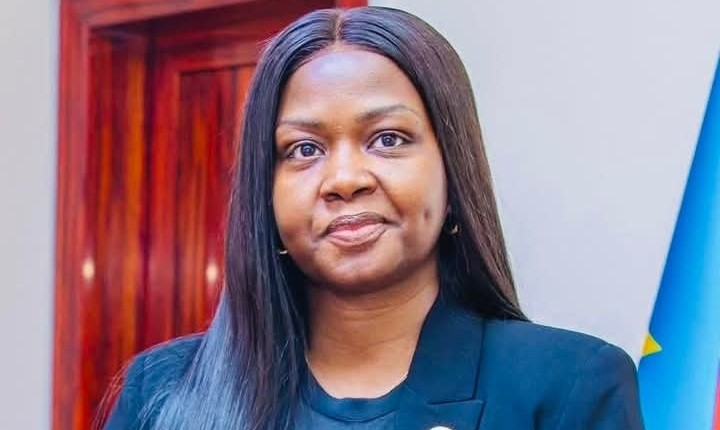Abstract
This article examines the prospects of Adut Salva Kiir Mayardit, daughter of President Salva Kiir Mayardit, emerging as the next President of South Sudan. Drawing on recent political developments, structural constraints, and historical patterns of elite succession, the paper situates Adut’s rise within broader debates about political dynasties, institutional weakness, and governance in post-conflict states. It argues that while her appointment as Senior Presidential Envoy for Special Programmes signals potential grooming for leadership, multiple factors—including elite competition, weak institutional frameworks, and limited administrative experience—render her pathway to the presidency uncertain. The analysis concludes that Adut remains a contender rather than an heir-apparent, reflecting the contested and fluid nature of political succession in South Sudan.
Keywords: South Sudan, Adut Salva Kiir, political succession, dynastic politics, governance, leadership transition
Background
In August 2025, Adut Salva Kiir Mayardit, daughter of South Sudan’s President Salva Kiir Mayardit, was appointed Senior Presidential Envoy for Special Programmes (Standard Zone News, 2025). Prior to this appointment, she established and led the Adut Salva Kiir Foundation, a humanitarian organisation focusing on education and women’s empowerment (Africa Press Arabic, 2025). Her appointment has stimulated considerable debate regarding nepotism, dynastic succession, and regime continuity within the South Sudanese political elite (Africanews, 2025). This debate unfolds amid an ageing president, recurring electoral postponements—currently rescheduled for 2026—and an elite engaged in manoeuvring over succession (Wikipedia, 2025).
Potential Pathways to Succession
Several factors suggest that Adut Salva Kiir Mayardit could be strategically positioned within the succession matrix of South Sudan’s current regime:
1. Institutional Entrenchment and Proximity to Power: Her elevation to a senior executive position, previously occupied by the Vice President, provides her institutional visibility and direct access to decision-making networks (Standard Zone News, 2025).
2. Indicators of Dynastic Ambition: Analysts interpret her appointment as consistent with broader dynastic consolidation in African regimes, where ruling elites seek to perpetuate influence through family succession (Monitor, 2025).
3. Weak Institutional Frameworks: South Sudan’s fragile institutional landscape elevates the role of informal pathways—such as kinship and patronage—in leadership selection, providing Adut strategic leverage (allAfrica.com, 2025).
4. Public Visibility and Symbolic Legitimacy: Through her foundation and government role, Adut has cultivated public recognition, with some perceiving her as a representative of generational renewal (Sudan Independent, 2025).
Constraints on a Presidential Trajectory
Despite these advantages, several factors limit the likelihood of Adut’s ascent:
1. Absence of a Formal Succession Mandate: No constitutional or party-based mechanism designates her as successor, with the SPLM remaining factionalised (Monitor, 2025).
2. Limited Administrative Experience: While experienced in humanitarian work, she lacks a deep career foundation in public administration or governance (Africa Press Arabic, 2025).
3. Elite Competition and Factional Contestation: Figures such as Benjamin Bol Mel have emerged as alternative successors, revealing an absence of dynastic consensus (Reuters, 2025).
4. Structural Volatility and Governance Fragility: South Sudan’s instability—rooted in ethnic divisions and weak institutions—renders leadership transitions unpredictable (allAfrica.com, 2025).
Analytical Assessment
Adut Salva Kiir Mayardit’s appointment reflects a strategic elite effort to consolidate familial influence within the ruling structure. Her visibility suggests deliberate political grooming, yet the probability of her uncontested ascent to the presidency remains low. South Sudan’s political arena is shaped by personalised rule, factional rivalry, and institutional fragility. Adut’s trajectory will depend on her ability to develop independent political capital, demonstrate competence, and navigate intra-party and ethnic dynamics. As South Sudan approaches the 2026 elections, she remains a contender rather than a confirmed successor, with the transition expected to be negotiated and unstable.
Conclusion
While Adut Salva Kiir Mayardit’s rise represents a significant development in South Sudanese politics, her potential presidency remains speculative. The interplay of familial ambition, elite contestation, and systemic fragility will determine her political fate. Ultimately, the question of succession in South Sudan concerns not only individuals but also the resilience of the post-liberation political order itself.
The writer, Blessed Abraham, is a political commentator and critical writer. He is a graduate of Deakin University and Charles Sturt University and focuses on governance, Law, public policy, and communitarian issues in South Sudan and beyond. He can be reached at blessedabraham50@gmail.com.
References
Africa Press Arabic. (2025). Adut Salva Kiir Foundation launches new humanitarian projects.
Africanews. (2025). Nepotism and political succession in South Sudan: Adut Kiir’s appointment sparks debate.
allAfrica.com. (2025). South Sudan’s uncertain electoral future and succession politics.
Monitor. (2025). Dynastic politics and controlled transitions in African regimes.
Reuters. (2025). South Sudan elite rivalry intensifies ahead of delayed elections.
Standard Zone News. (2025). President Kiir appoints daughter as Senior Presidential Envoy for Special Programmes.
Sudan Independent. (2025). Adut Kiir: Youthful face of South Sudan’s humanitarian and political space.
Wikipedia. (2025). Politics of South Sudan.
The views expressed in ‘opinion’ articles published by Radio Tamazuj are solely those of the writer. The veracity of any claims made is the responsibility of the author, not Radio Tamazuj.




